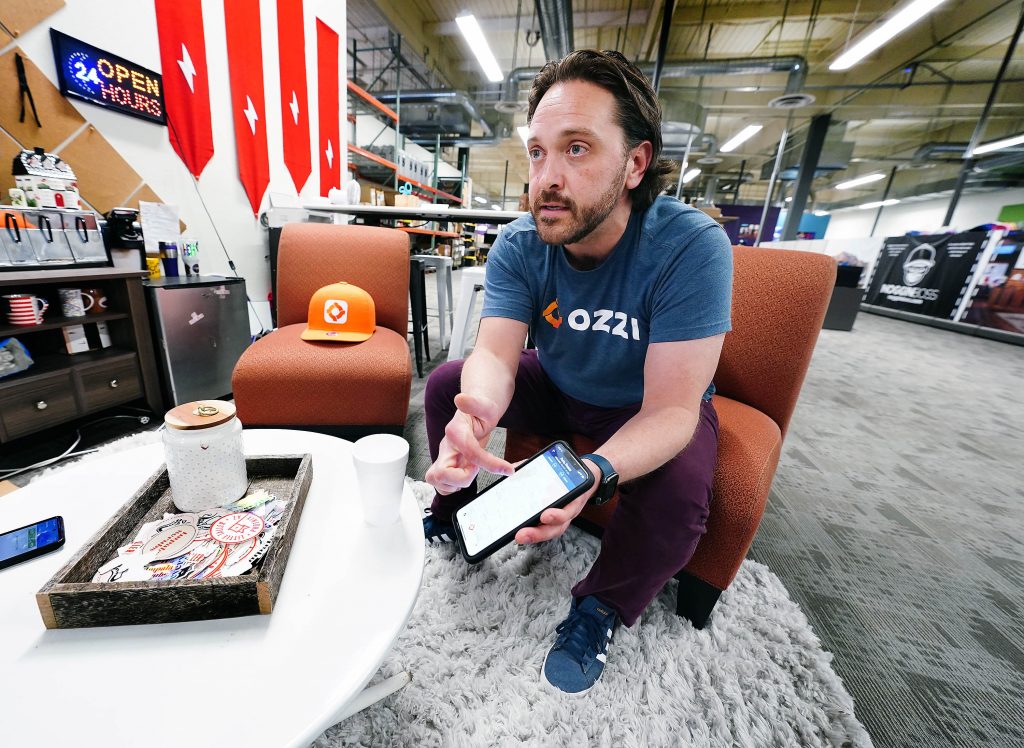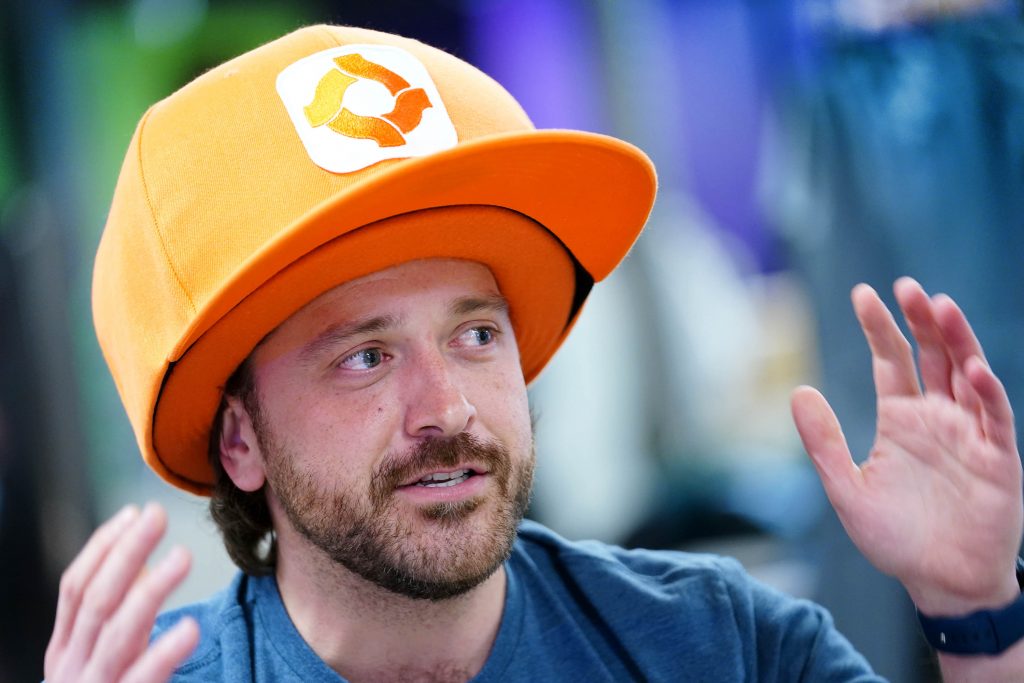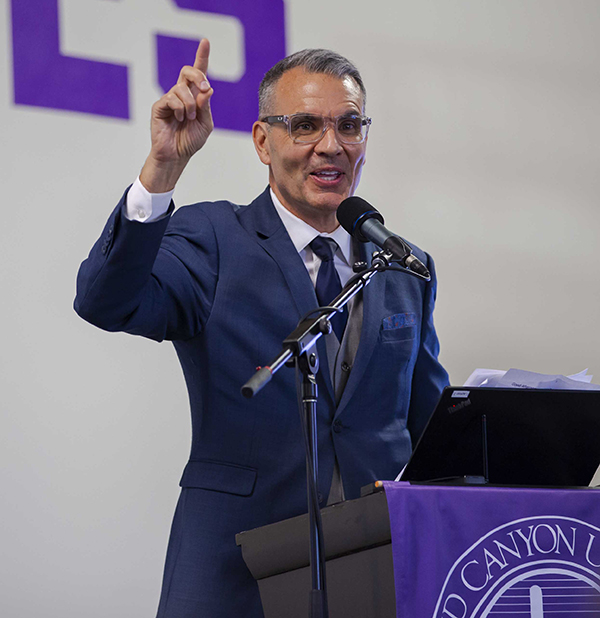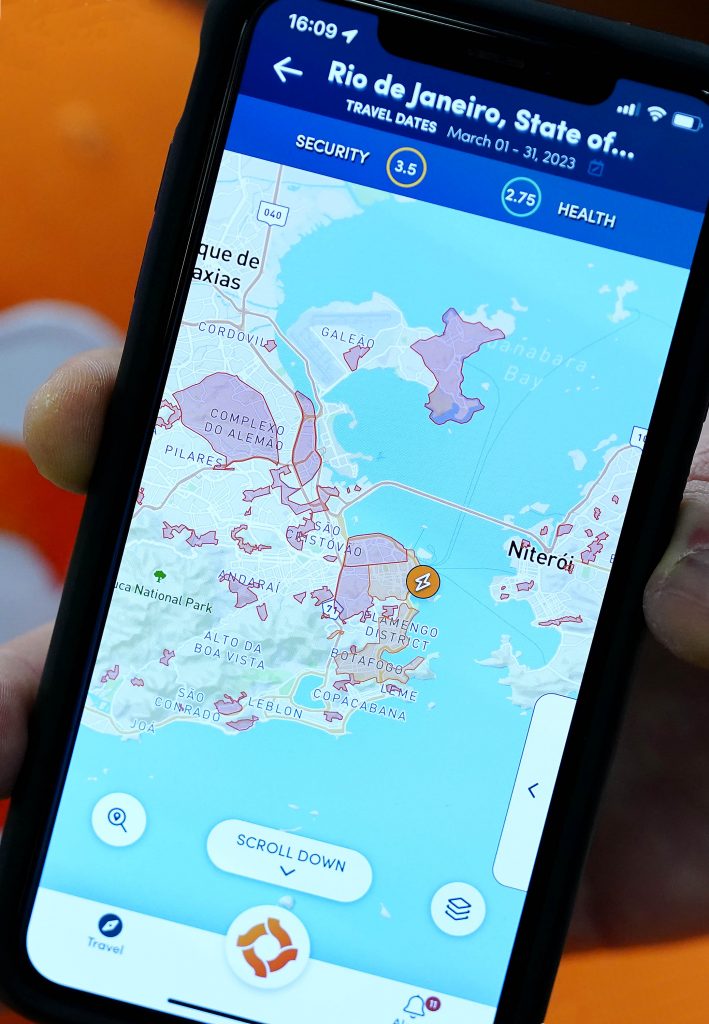
Photos by Ralph Freso
Looking back, Isaiah Lopez calls it a “ridiculous idea” — a huge risk to jettison his steady gig developing safety applications for corporations to go independent in 2018.
While he started well with a Department of Defense contract in just six months, the pandemic stalled travel. And when things were starting to look up in 2021, political winds changed, and the government ended its small business technical contract program.
So Lopez launched OZZI, his own travel safety application, which gives users street-level security and health information across the globe.
“Entrepreneurship is a lot of highs and lows,” said Lopez, OZZI's founder and chief executive officer.
The highs finally arrived when OZZI moved into the Canyon Ventures Center for Innovation and Entrepreneurship, the Grand Canyon University business incubator, during the first quarter of 2022.
“Canyon Ventures softened the blow. It’s been a game changer for our business to get the support we need to persist after all these setbacks,” he said.
“I love the Canyon Ventures environment; we can bounce ideas off each other,” Lopez said of 30 companies in Building 66. “I work with Branch 49, who helped us come up with a tighter marketing script, and Noggin Boss to put my logo on its hat and Neon with digital advertising.”

GCU students have been a big part of his growth, too.
Senior business major Adam Valadez helped set up OZZI’s data operations, tracking metrics and developing insights into raw data.
“I’ve taken a lot of real-life data experience to add to the theory from my classes,” said Valadez, who is scheduled to graduate in April and has a resume highlight to land a job in business analytics.
Valadez also helped build social media advertising in the company’s office in Canyon Ventures.
More social media is on the horizon from a College of Arts and Media class that has included OZZI in a case study on building community in the digital environment.
“I recognize it as a weakness,” Lopez said. “I can’t say how fortunate and privileged I am to have 12 minds who think about this constantly to help us think about it.”
Community-building around safety is tough in social media, he added, and requires some vulnerability to relate. “It’s not fun at all, and that is our challenge in the consumer space.”

GCU students get a lot in return, says Robert Vera, founding Executive Director of Canyon Ventures.
“Now education is more of a commodity, you can get it online in a lot of places. But Canyon Ventures gives you mentoring, gives you access to professionals,” he said. “We are also starting to push our companies out into the greater Phoenix area, and they are creating jobs and hiring our students.”
Students also work with a company filling a social need.
“I think safety is a service as the world becomes more unpredictable,” Vera said. “OZZI gives you access to resources to give you more information as to what is going on in those communities.”
Consumers can certainly mine the internet for news on hot spots of unrest and even check government sites for travel advisories, but Lopez said it’s tough to get local information.
“What OZZI does is go to the city and street level to provide more information on safety with a rating system on medical infrastructure, security services available, kidnapping and terrorism risks and more,” he said. “When you are going to a place like Mexico, you are going to Cabo, you are going to Cancun, those local places.”

For example, Ozzi recently issued a real-time travel alert in a Mexican city where there was cartel violence. It gave users information on civil unrest in Peru in case they are traveling to Machu Picchu.
If you are visiting the Eiffel Tower in Paris, he said, pulling up his map on OZZI, you’ll see a color-coded rating of a neighborhood a few blocks to the east, which shows that you probably don’t want to walk in it at night. Or in Rio de Janeiro, you’ll find it’s probably good to carry enough cash because using the ATM downtown includes a history of criminals robbing travelers at the kiosk.
It not only issues travel alerts whenever you go into an area with an elevated threat but gives you information on booking lodging in an area without a high crime rate.
The idea was partly borne of co-founder Vince Bicicchi’s love of travel and his wife’s fears of the danger in places they wanted to go, Lopez said.
It especially helps women who may have an elevated risks of being harassed and those wary of travel to gain confidence, as 60% of the population hasn’t traveled outside the country, he said.
“Nomadism is taking a leap forward with remote work, taking your independence into your own hands, and women are leading the way in a lot of respects. We are happy to empower that mission of self-discovery of people of any gender.”
Available on Apple and Android app stores, Lopez said his early-stage startup was also helped by Canyon Ventures connecting him with investors.
“We love what GCU is doing for the city,” he said.
Grand Canyon University senior writer Mike Kilen can be reached at [email protected] or at 602-639-6764.
***
Related content:
GCU News: How Noggin Boss blew the lid off hat market
GCU News: Students, Canyon Angels investors make a big splash



































































